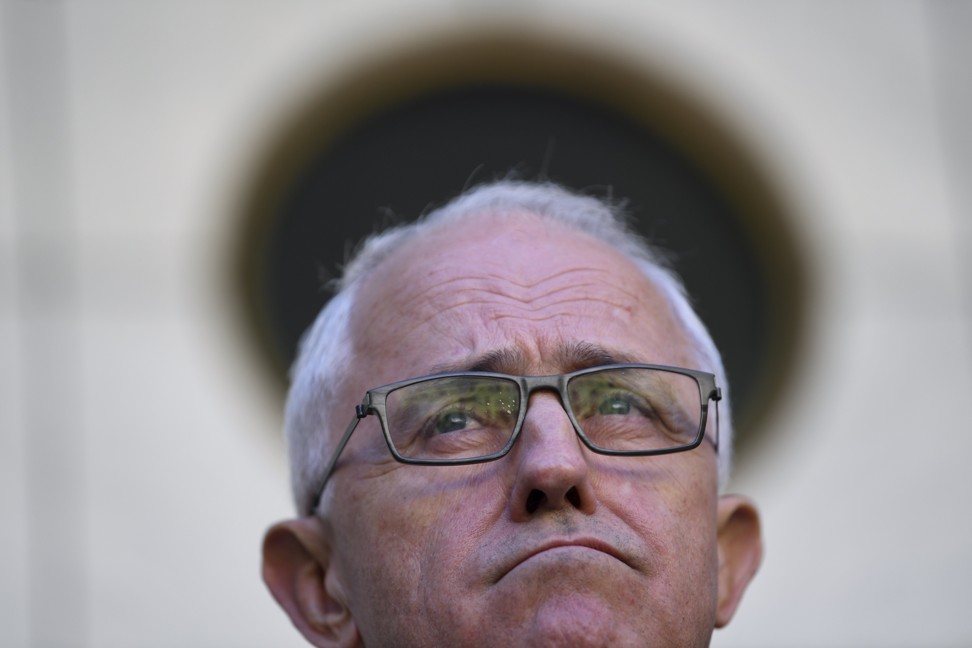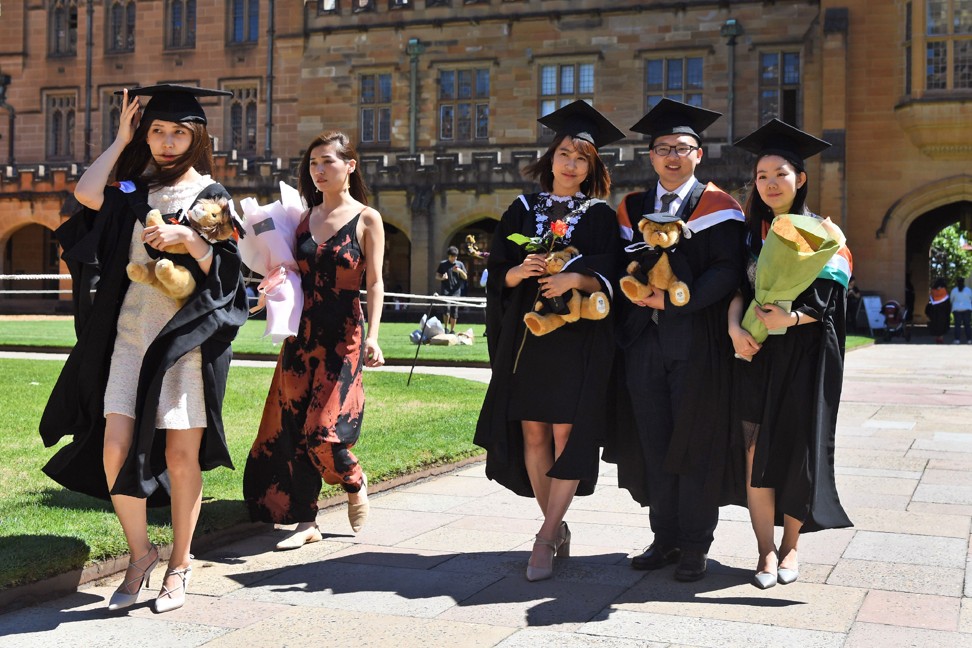
Australia Week in China won’t be affected by Canberra-Beijing tensions, officials say
Arrangements for annual business event still under discussion despite claims Australian officials were refused visas to enter China
New legislation in Australia aimed at curbing foreign interference in domestic affairs may be a sign of growing anxiety about China’s political influence in the country, but officials said it will not jeopardise a planned business event between the two nations.
“The timing of the next Australia Week in China is being discussed between the Australian and Chinese governments,” a spokesman for the Department of Foreign Affairs and Trade in Canberra said.
The department also dismissed reports that Beijing had turned down visas for travelling officials.
“No visas have been rejected for Australian ministers to travel to China,” the spokesman said. Beijing earlier called the allegations “nonsensensical”.
China’s foreign ministry on Thursday described accusations of Chinese interference in Australia as “totally groundless” ahead of the expected passing of the proposed national security law.
The statement came after Australian Prime Minister Malcolm Turnbull admitted bilateral relations had been strained.
“There has certainly been a degree of tension in the relationship that has arisen because of criticism in China about our foreign interference laws,” he said in an interview on Melbourne radio station 3AW.
Jingdong Yuan, associate professor of Asia-Pacific security at the University of Sydney, said Canberra was in a “very difficult situation” because China was Australia’s largest trading partner, with bilateral volume worth US$129 billion last year.
“On one hand, China is very important for the Australian economy and prosperity,” he said. “But on the other, Australia is concerned about the rise of China and the security implications … Facing a rising power like China, they need to stand their ground.”
The tensions were highlighted last week by the lack of ministerial-level Australian officials at the Boao Forum for Asia, an annual conference in southern China.
Relations between the two countries deteriorated rapidly last year over a series of controversies involving perceived Chinese interference in Australia’s domestic politics, Beijing’s claims to almost all of the South China Sea, and high-profile incidents on Australian university campuses.
In December, Australian senator Sam Dastyari resigned over his alleged links to Chinese donors, and comments in favour of Beijing’s stance on the South China Sea, which went against the position of his own political party.
Canberra has watched China’s growing influence in the region closely. In the past few days, there have been front page headlines saying China is exploring the possibility of building a military base in the Pacific island nation of Vanuatu, which officials on both sides denied.
There were also several reports last year of disputes on university campuses between academics and Chinese students. Critics have accused the United Front Work Department, an agency of China’s Communist Party, and the Chinese Students and Scholars Association of politically motivated interference on Australian campuses.
At the same time, there were several cases of verbal or physical attacks on Chinese students in Australia – of which there were more than 184,500 in 2017 – including one in October involving three students in Canberra, which led to the Chinese consulate in Melbourne issuing a safety warning.
Alan Dupont, the Australian chief executive of geopolitical risk consultancy Cognoscenti Group, said that while Chinese students and investment in Australia were generally seen as positives, many people in the country feared “the extent to which China is starting to shape domestic politics”.
That included the mobilisation of students for political reasons, the appearance of Beijing-funded Confucius Institutes on campuses, pressure on Australia’s Chinese-language media to toe the Communist Party line, and the influence of political donors, he said.
“It’s not just Australia. Australia is kind of an example where China has really pushed the boundaries with some of these things … We’ve had more open debate about it because we’re in such a close trading relationship,” Dupont said.
“We’re sort of like an experiment where all this is playing out, and other countries are seeing how we’re dealing with this.”
Wei Zongyou, an international relations professor at Fudan University in Shanghai, said the rise of anti-China voices in Australia and accusations of Beijing’s “influence and penetration” strategy had hurt bilateral relations.
“If these anti-China policies continue to progress, it will certainly have a negative impact on political and economic relations,” he said. “The biggest challenge is, can Australia view China’s rise with an unbiased heart and not … through a geopolitical or zero-sum lens?”



